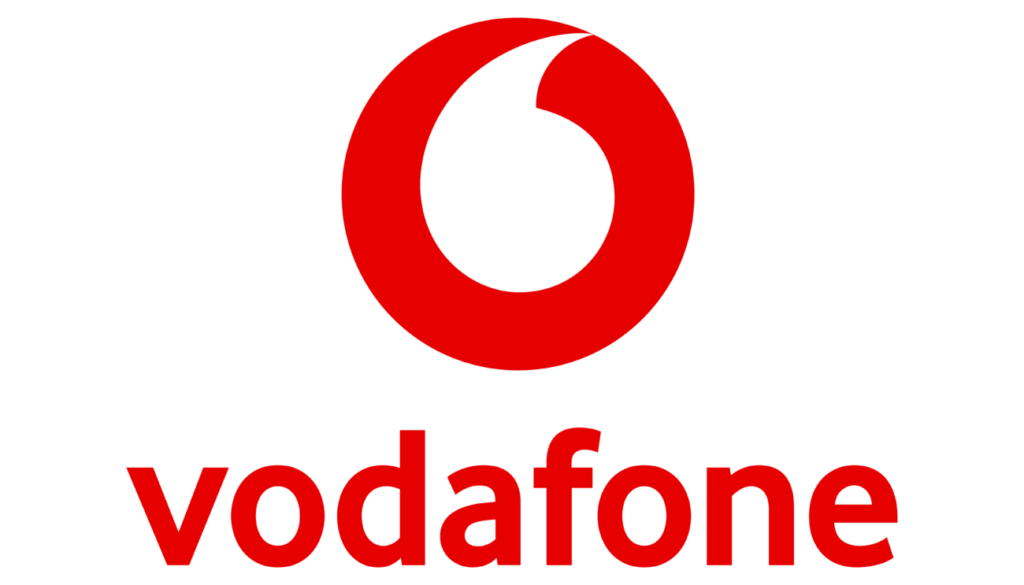Obituary: Sandy Carmichael
Scottish Rugby is immensely saddened to hear that Sandy Carmichael, one of Scottish Rugby’s most lauded sons and a prop forward ahead of his time, died yesterday (Wednesday 27 October) after a brief illness. He was 77.
Alexander Bennett Carmichael MBE was a trail-blazer. He had glorious footballing skills and pace that would sit comfortably in the modern era but also the more traditional strengths of a front-row forward of the 1960s and 1970s.
He was also a gentleman, courageous and fair, and he tackled like the clap of doom. Scotland’s victory against France at the Stade Colombes in 1969 is often remembered for Jim Telfer’s try but those who witnessed events that day pinpoint two valiant cover-tackles by Carmichael as crucial to the Scotland win.
He became the first Scot to reach the milestone of 50 caps for his country, his first against Ireland at Murrayfield in 1967.His last against the same opponents in Dublin 11 years later.
Alongside primarily Ian McLauchlan and Frank Laidlaw/Duncan Madsen/Colin Fisher in the front-row and the late Gordon Brown and Alastair McHarg in the boiler-house, Carmichael was the cornerstone of a Scotland front-five that was feared throughout the rugby world in the early 1970s.
They took scrummaging to new levels, with a little help from the guru of the setpiece, Bill Dickinson, described in the quaint Scottish Rugby lexicon of the time as “advisor to the captain.”
It was no surprise that McLauchlan, Laidlaw, Carmichael and Brown were all distinguished British & Irish Lions.
Ian McLauchlan said today: “Sandy was a gentle giant and a really, really good rugby player.
“He was obviously one of the all-time greats as far as Scotland is concerned but vastly popular throughout the rugby world.
“He was an amazing tourist. Nothing put him up nor down.He would never get up in the morning and be grumpy.You always found him the same – just Sandy.
“He was hugely motivated to work in any situation and with any team he played for. It’s a great loss.”
Chairman of the Scottish Rugby Board John Jeffrey said: “The term legend is used too often in the modern game, but Sandy was a true legend of the game in Scotland which was recognised by him being included in the very first tranche of inductees in our Hall of Fame.
“He was a giant of a man who not only anchored the pack but broke that mould by being a great ball player as well as an athlete.
“Once he retired from playing he continued to put something back into the game by coaching at club level and was a trail-blazer for the Women’s game.
“Off the pitch, he was an absolute gentleman who always had a word for young enthusiastic players at all levels.
“Scottish Rugby has lost one of its greatest ambassadors and our thought and condolences are with his family.”
In his youth, Sandy was also a renowned competitor on the Highland Games circuit where his sprinter’s pace came to the fore.
But let’s take a step back.
Born in Glasgow on 2 February 1944, Sandy Carmichael came from a rich sporting pedigree. His grand-father, Alexander Bennett, played right wing for the Scotland national football team and also played for Celtic and Rangers! Perhaps that was from where he inherited his speed.
Sandy’s father, David Carmichael was a local councillor, and the Carmichael Hall in Eastwood was named in his memory.
Sandy was the middle of three brothers.David was his elder brother and Peter the younger.
He was educated at Belmont school and then moved east to continue his schooling at Loretto in Musselburgh, where his breadth of skills was honed with time at No 8.
He made his debut for West of Scotland in 1962 and won selection for Glasgow district for the first time, two years later.
His first cap for Scotland occurred in remarkable circumstances. He was not in the starting XV and the Scotland front-row to face Ireland on 25 February 1967 was John Macdonald, Frank Laidlaw and David Rollo.
Rollo had reportedly been in fine fettle at the Friday practice but one hour before kick-off fell ill and Carmichael was promptly enlisted to make his debut at tight-head.
Sandy’s parents, David and Jet, were sitting in the stand but were totally oblivious that Sandy was about to take the field to win his first Scotland cap.
He had to wait until later that year to make his first start for Scotland against New Zealand, a match remembered for the sending off of Colin Meads.
He quickly became established as a mainstay of the Scotland team, enjoying victories over Australia and South Africa before scoring his only try for Scotland in the astonishing 1971 Murrayfield match against Wales, which the visitors edged 19-18 with a late touchline conversion by John Taylor.
Writing in the Glasgow Herald, Bill McMurtrie praised the Scotland pack.He wrote: “Others all had their moments, especially Carmichael who pounced on a rare loose tap down by Thomas for a try in the right-hand corner.”
It was fitting that Sandy was selected for the 1971 Lions tour to New Zealand.It was a tour that went down in history.The first and thus far only Lions team to win a Test series in the Land of the Long White Cloud.
It was not without notoriety either, however, as in the match against Canterbury before the first Test, Sandy was the target of sustained foul play, suffering five fractures to his cheekbone.
Typifying his bravery, he saw out the match, but the injuries forced him to return home after just six matches on that tour.
His daughter, Melanie, recounted: “Every time Scotland played New Zealand since, journalists would come calling and would ask my dad ‘Who did it?’
“But he would never say.He took that one with him to his grave.It just wasn’t in his make-up to give whoever did it any credibility.”
Sandy’s first wife, Avril, was in hospital at the time, back in Glasgow giving birth to their first child, Trevor.The newspaper photos of Sandy’s battered face were quite a shock.
Sandy recovered and went on to enjoy another victorious Lions tour three years later in South Africa.All told he played in 16 Lions matches.
Daughter Melanie arrived later in 1974 as Sandy continued to carve a special place in rugby folklore.
He had played in the famous Barbarians victory over New Zealand at Cardiff in 1973 and went on to represent the invitational club 20 times, captaining them against Quebec on a North American tour in 1976.
A year later he was awarded the MBE in the Silver Jubilee and birthday honours.
Off the rugby field, he ran his own plant hire company in Glasgow and remained passionate in his rugby interest.
Son Trevor played at West and now head coach at GHA and also runs Glasgow South Rugby Tots, truly inspiring the next generation.This weekend, appropriately enough, Trevor’s son, Scott, is due to play for GHA 2nds against Sandy’s beloved West.
Sandy was a great supporter of women’s rugby coaching at both West of Scotland and with the women’s national team.His second wife, Alison, also played at West, where she met Sandy, and followed him into international rugby in the front-row. They had two children, Ruairidh and Rhona.
In 2010, Sandy was part of the inaugural induction into the Scottish Rugby Hall of Fame.
In recent times his mobility was impaired, and he received regular support from Scottish Rugby’s own charity, the Murrayfield Injured Players Foundation.
Though he suffered from ill health, he remained sharp in his analysis of the game and was great company often with his friends Steve McGarry or Tommy Little at international post-match functions.
Daughter Mel added: “My dad literally would have done anything for anybody.He was an extremely selfless man, very caring and very loving and in later years quite an emotive person.His impact on so many people around the world has been quite amazing.”
Scottish Rugby will fly the Saltire at half-mast at BT Murrayfield today and will also pay our respects to Sandy Carmichael at the Scotland v Tonga Autumn Nations Series international on Saturday.
Scottish Rugby extends its sincere condolences to Sandy Carmichael’s family and many friends.
Tags
Related news
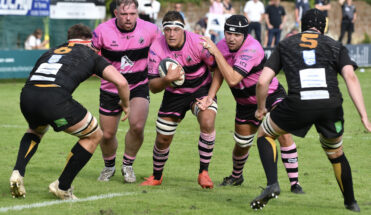
Arnold Clark Premierships feature match: Heriot’s v Ayr
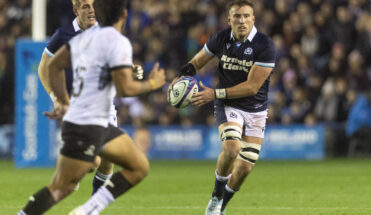
Fagerson to reach 50 in Australia finale

Supporting Siobhan’s Legacy of Love

Scottish Rugby youth panellists announced
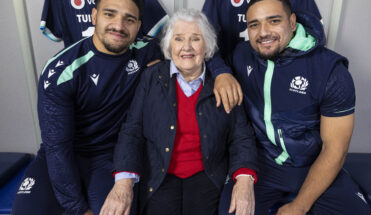
Tuipulotu brothers reunited with their ‘Greenock granny’
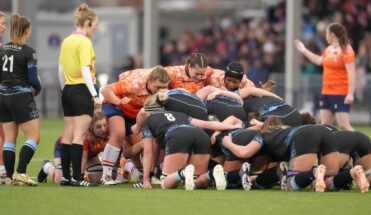
Celtic Challenge 2024/25 fixtures announced
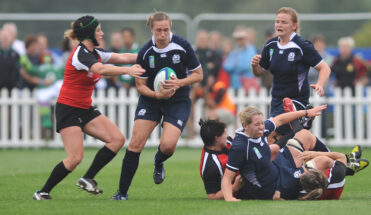
Donna Kennedy inducted into World Rugby Hall of Fame

Stafford McDowall to captain Scotland A against Chile this weekend

Celtic Challenge 2024/25 Head Coaches announced





